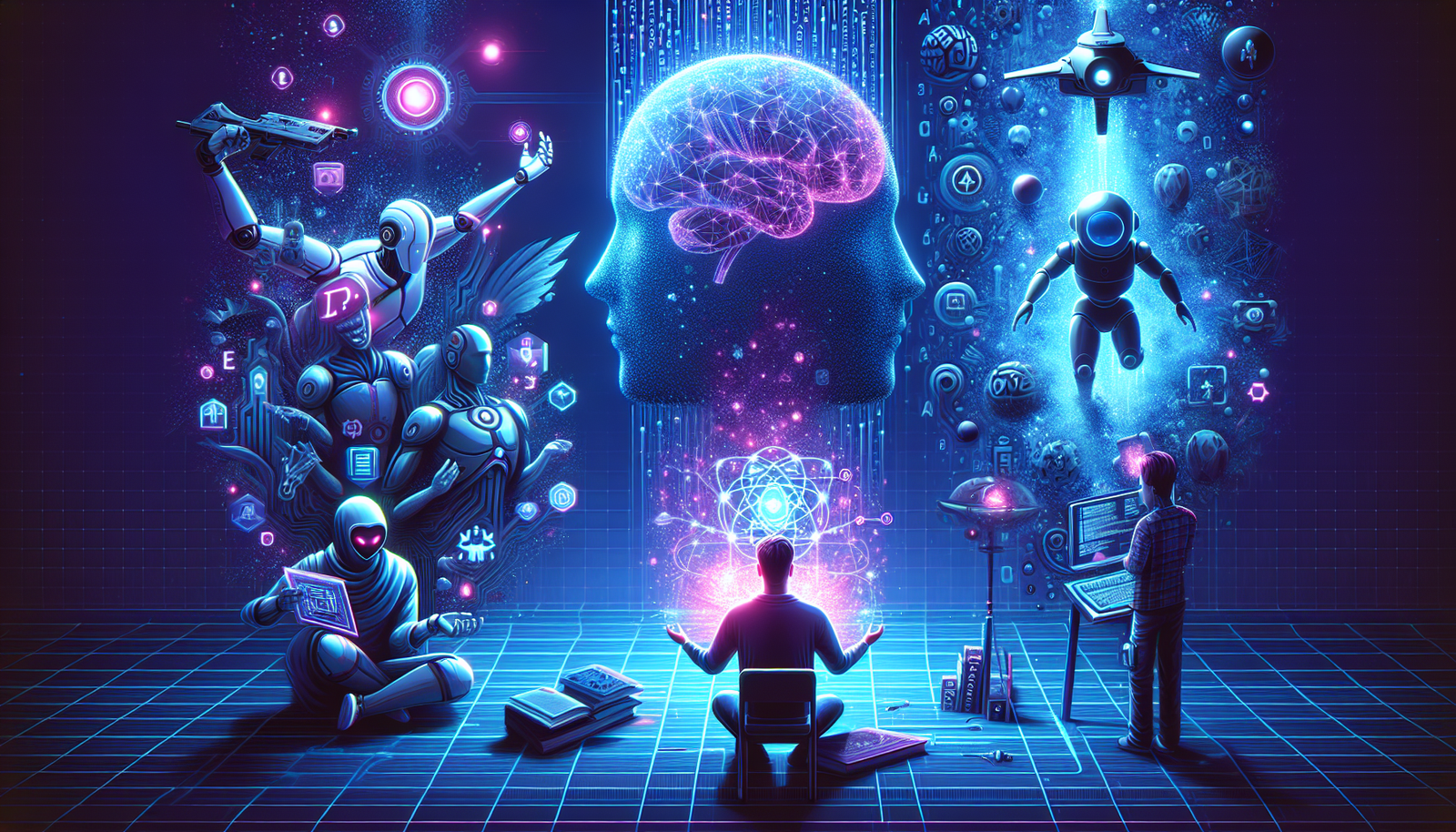The impact of generative AI is profoundly shaping the landscape of video game professions, thus redefining creative processes. Developers are experimenting with tools that allow for an accelerated design of immersive worlds and captivating narratives, promising unprecedented innovation. However, this technological shift raises significant ethical and creative questions in the face of an inevitable digitalization. As studios leverage algorithms to enhance user experience, concerns about the very nature of human creativity are multiplying. The integration of AI represents an opportunity but also a challenge for industry professionals who must navigate between progress and the preservation of an authentic artistic vision.
The impact of generative AI on video game development
The introduction of generative AI in the realm of video games fundamentally transforms the creation process. This mechanism enables the generation of scenarios, characters, and immersive worlds with a speed and efficiency never seen before. Recent tools like DALL-E and ChatGPT aim to enhance creativity by providing support for game design, facilitating the creation of high-quality content.
Developers are offered the opportunity to exploit algorithms capable of crafting complex narratives in just a few clicks. Thanks to these advancements, one can envision a variability of plot that adapts to the player’s actions. Consequently, the gaming experience becomes less linear, offering unprecedented possibilities for customization. Thus, gamers find themselves immersed in dynamic narratives, where each choice influences the course of the story.
Enhancements in gameplay and interactions
Generative AI plays a central role in improving the behaviors of non-player characters (NPCs). These entities, once static and predictable, are now acquiring more realistic behaviors through machine learning models. NPCs thus interact in a more authentic way, making gaming environments more vibrant and engaging.
Furthermore, the procedural generation of virtual environments optimizes development time. Studios focus on narrative and aesthetic content, while AI takes care of creating complex landscapes. More than 70% of development studios have already integrated AI solutions into their projects, highlighting the growing adoption of these technologies. Efficiency and creativity combine to offer enriched and fulfilling gameplay.
Challenges associated with implementing generative AI
Although generative AI promises significant advancements, it is not without considerable risks. Concerns regarding intellectual property are multiplying. The potential for AI systems to plagiarize artists’ works raises ethical and legal questions. Prominent creators, like Paul McCartney, express reservations about the use of AI in the artistic field.
The increased reliance on AI prompts professionals to rethink their roles in the market. A reassessment of traditional skills may prove inevitable. Thus, some fear that the development of generative AI systems could erode jobs in the sector. Balancing innovation and job preservation constitutes a major challenge to overcome.
Future perspectives and market growth
The economic impact of generative AI in the video game industry is experiencing explosive growth. In 2022, its influence on the market was already estimated at $922 million, and forecasts indicate it will surpass $7 billion by 2032. The compound annual growth rate (CAGR) of approximately 23.3% reveals the enormous potential of this technology.
Massive investments in the research and development of AI tools, such as those announced by Emmanuel Macron, underscore the commitment to innovation. The growing enthusiasm for virtual reality and augmented reality, coupled with AI, promises to further expand the horizons of video gaming, redefining players’ expectations.
The path towards the complete adoption of generative AI requires a balance between technical innovation and addressing social challenges. The video game industry stands at a crossroads, ready to leverage advantages while navigating a constantly changing landscape.
FAQ on the impact of generative AI on video game professions
What are the main advantages of generative AI in video game development?
Generative AI allows for rapid content creation, such as virtual worlds and characters, while optimizing costs and reducing development time. It also fosters innovation and originality in games.
What challenges do video game developers face when integrating generative AI?
Developers may encounter technical challenges related to the implementation of AI systems, as well as ethical concerns surrounding copyright and plagiarism, which can lead to intellectual property issues.
How does generative AI affect the gaming experience for users?
Generative AI enhances user experience by offering increased customization options and creating responsive and dynamic environments, thereby fostering stronger immersion in the game.
What are the impacts on employment in jobs related to video games with the rise of generative AI?
While AI may automate certain tasks, it can also create new specialized positions in the development and utilization of AI, requiring adapted skills to remain competitive in the industry.
How could generative AI transform the storytelling process in video games?
It can generate dynamic and adaptive narratives that evolve based on the player’s choices, thus enriching the storytelling and making each gaming experience unique.
How do video game studios measure the success of integrating generative AI?
Studios assess success through player feedback, analysis of game performance, and the satisfaction of development teams regarding the effectiveness of AI tools used.
What roles does generative AI play in improving animations and graphics in video games?
Generative AI can create smooth animations and realistic textures in real time, allowing developers to produce high-quality visuals without requiring exhaustive manual work.
What skills are increasingly sought after in video game professionals due to generative AI?
Skills in AI programming, a good understanding of machine learning algorithms, and the ability to work with automation tools are becoming increasingly valued.
How could generative AI change funding for video games?
It could influence funding by enabling rapid prototypes and frequent updates, which may attract more investors looking to see tangible results quickly.
Can generative AI completely replace creative roles in video game development?
No, generative AI is designed to assist creators, but it does not replace human creativity, which is essential for giving a soul and a unique vision to game projects.






